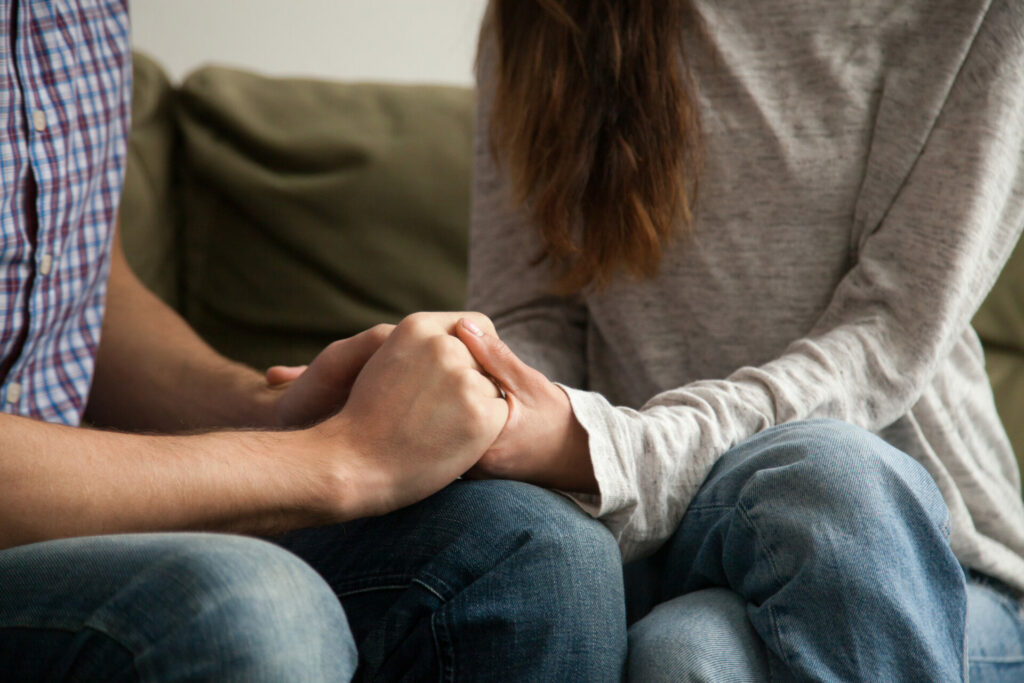Words like depression and anxiety have more than one meaning. Everyone gets depressed at times. We all experience anxiety in one form or another. So, if you tell your partner you’re anxious about a job interview or depressed that a friend has moved, they will understand what you mean. However, trying to explain depression and anxiety as mental health disorders is not nearly as simple. Meanwhile, there is no one in the world that need more to understand.
With this in mind, let’s explore both conditions. And let’s discover productive ways to empower your partner to understand what you are experiencing.
4 Simple Ways To Explain Depression And Anxiety To Your Partner
1. They Are Far More Than They May Seem
It’s easy to dismiss anxiety and depression as transient emotions but — in some cases — they represent a disorder. They don’t subside on their own. If anything, they spiral and escalate. It is not at all helpful to tell a person with depression to “cheer up.” It is not at all helpful to tell a person with anxiety to “calm down.” They’re not being dramatic or seeking attention. To be seen this way only worsens the shame and guilt they are already feeling.
2. Depression And Anxiety Cause Physical Symptoms
The stereotypical symptoms of anxiety and depression are very real. Yes, depressed people may withdraw into despair. Anxious people will avoid social gatherings. But so much more is going on. Here are just some of the physical signs of either/or both disorders:
- Unexplained pain and tension, e.g. joint pain, back discomfort, headaches and migraines, and muscle aches
- Fatigue and low energy
- Sleep disturbances ranging from oversleeping to insomnia
- Changes in appetite from eating more to barely eating at all
- Weight loss or gain without an obvious cause
- Digestive issues
- Restlessness
- Low libido, decreased interest in sex
- Skin reactions and disorders
- Symptoms that appear to be panic-related, e.g. fidgety, heart palpitations, sweating, trembling, lightheadedness, and dizziness
If your partner is struggling with depression or anxiety, they are also struggling with a fair amount of physical distress.
3. People Don’t Choose To Have Depression Or Anxiety
People don’t have a choice when it comes to depression and anxiety. In fact, the causes are rarely clear. It could be genetics or childhood trauma. Growing up poor may have played a role or perhaps it was something that research has yet to discover. Your partner is not happy when they feel anxious or depressed. They are certainly not looking to make you upset or miserable.
Activate your compassion and empathy as you would if someone you loved was diagnosed with a medical disease. Your partner deserves your understanding and your support.
4. Depression And Anxiety Are Treatable
It may pain you to see your partner suffering but help is available. As is the case for virtually any malady, it’s not about finding a quick fix or magic pill. Under the guidance of an experienced and skilled therapist, people with depression and/or anxiety can thrive again. Talk to your partner about treatment. Help them resist the urge to self-medicate through unhealthy choices. Work as a team to find the right solutions to bring them to a place of healing and recovery.
How Can You Put This Knowledge to Good Use?
First of all, you can find ways to shift your perspective and thus, your behavior. In addition, talk to your partner and learn more about what they are feeling. Urge them to consult with a therapist. You may also want to consider talking to a therapist yourself. Neither you nor your partner asked for this situation but, with professional help, you can prevail together. Reach out soon to learn more about anxiety therapy or depression treatment.




